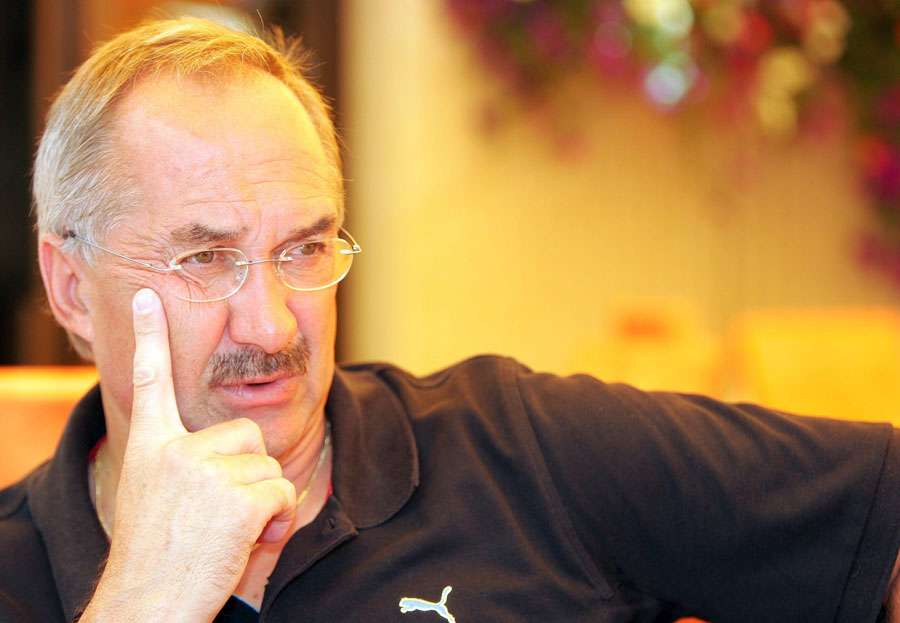by STEVE HAN
When the Korea Football Association (KFA) unveiled Uli Stielike from Germany as head coach of South Korea’s national team for the 2018 FIFA World Cup, the fans and media alike began asking the same question: “Who?!”
Here are five things you should know about the 59-year-old man who will lead South Korean soccer’s quest for the World Cup in 2018 after its massive failure in Brazil this past summer.
Stielike was easily one of the world’s best players in his generation.
A playmaking central defender, Stielike played for Borussia Monchengladbach–a German powerhouse in the 70s–from 1972 to 1977, winning three German league titles. He then moved to Europe’s winningest club of all-time, Real Madrid of Spain, where he won three Spanish league titles. The deep-lying playmaker, known for his high “soccer IQ,” was also the centerpiece of the German national team that won the 1980 European Championship. To this day, Stielike remains as one of very few players who’ve played in the finals of the World Cup, European Championship and European Cup (now known as the Champions League).
Unfortunately, Stielike has little to no competitive coaching experience.
He started his coaching career in 1989 as the head coach of the Swiss national team, but left two years later with no notable accomplishments. He then bounced around the second divisions of German and Spanish leagues before becoming an assistant coach for the German national team from 1998 to 2000, a period known as the “dark age” for German soccer. Between 2001 to 2006, he coached Germany’s youth national teams of various age groups. Since then, he coached briefly in Switzerland before working with two different professional teams in Qatar over three years. He has been out of coaching since 2012. Stielike doesn’t possess any notable winning pedigree as a coach and has no experience in coaching a team in a competitive environment, such as the World Cup. That’s a concern for Korea, as its ultimate goal is to redeem itself four years later from this past summer’s disastrous World Cup campaign.
“Stielike’s only coaching experience was in Qatar over the last six years,” said Hyunmin Kim, Goal.com Korea‘s German soccer columnist. “He has been away from European soccer for a long time, so it’s hard to determine how well he has kept up with the rapid pace of modern soccer’s development in recent years.”
 Uli Stielike playing for Germany
Uli Stielike playing for Germany
But Stielike has firsthand experience in revamping and developing Germany’s modern national team program, which today is considered as the best in the world.
German soccer’s rise over the last decade began when the German Football Association (DFB) decided to plow through its youth development model for all ages to re-brand German soccer’s image. Until then, the Germans were notorious for their rigid, physical style of play, which evidently hit a dead end when the national team crashed out of the first round at the 2000 European Championships. Stielike was hired to oversee youngsters who could potentially represent Germany in the future. His job over the next six years entailed coaching Germany’s under-19, under-20 and under-21 national teams. Some players who played under Stielike’s guidance during his six year stint include Philipp Lahm, Bastian Schweinsteiger, Per Mertesacker and Lukas Podolski, all of whom were part of Germany’s World Cup winning side in Brazil this year.
“Stielike took over Germany’s youth teams while the national team was struggling,” said Goal.com’s Kim, who lived in Germany during the early and mid-2000s and followed Stielike’s teams. “He served as the coach who bridged the gap between a struggling team and talented young players, like Lahm, Schweinsteiger, Mertesacker and Podolski. Those are the players that opened the floodgate and started Germany’s golden generation.”
Stielike had his chance to coach at the World Cup in 2010, but his dreams were shattered when his son abruptly died two years before the tournament.
The closest Stielike came to coaching a national team at the World Cup came in 2006 when he became the head coach of Ivory Coast, a juggernaut of a team from Africa led by Didier Drogba, who was one of the best forwards in the world at the time. Stielike may have dreamed of leading the team of talented young players to the 2010 World Cup, but sadly, he left the team in January 2008 when his son, Michael, became ill with a respiratory disease and died a month later. Stielike returned to Ivory Coast in March, but he soon left the team after his contract wasn’t renewed.
It was Stielike’s willingness to commit to the growth of South Korean soccer at all levels that convinced the KFA to hire him.
Many qualified coaches around the league expressed their interest in coaching the Korean national team, but the challenge for the KFA was to find a coach who’s committed to helping Korean soccer grow at all levels, not exclusive to producing results at the World Cup four years later. Bert van Marwijk, a renowned Dutch coach, was in pole position to land the job last month, but the deal fell through when he demanded a two-year contract instead of four and that he maintains his residence in Holland throughout the term. On the other hand, Stielike promised to re-locate to Korea with his wife. He also agreed to expand his role beyond coaching the national team and lead seminars for coaches around the country and hold clinics for young soccer players over the next four years.









